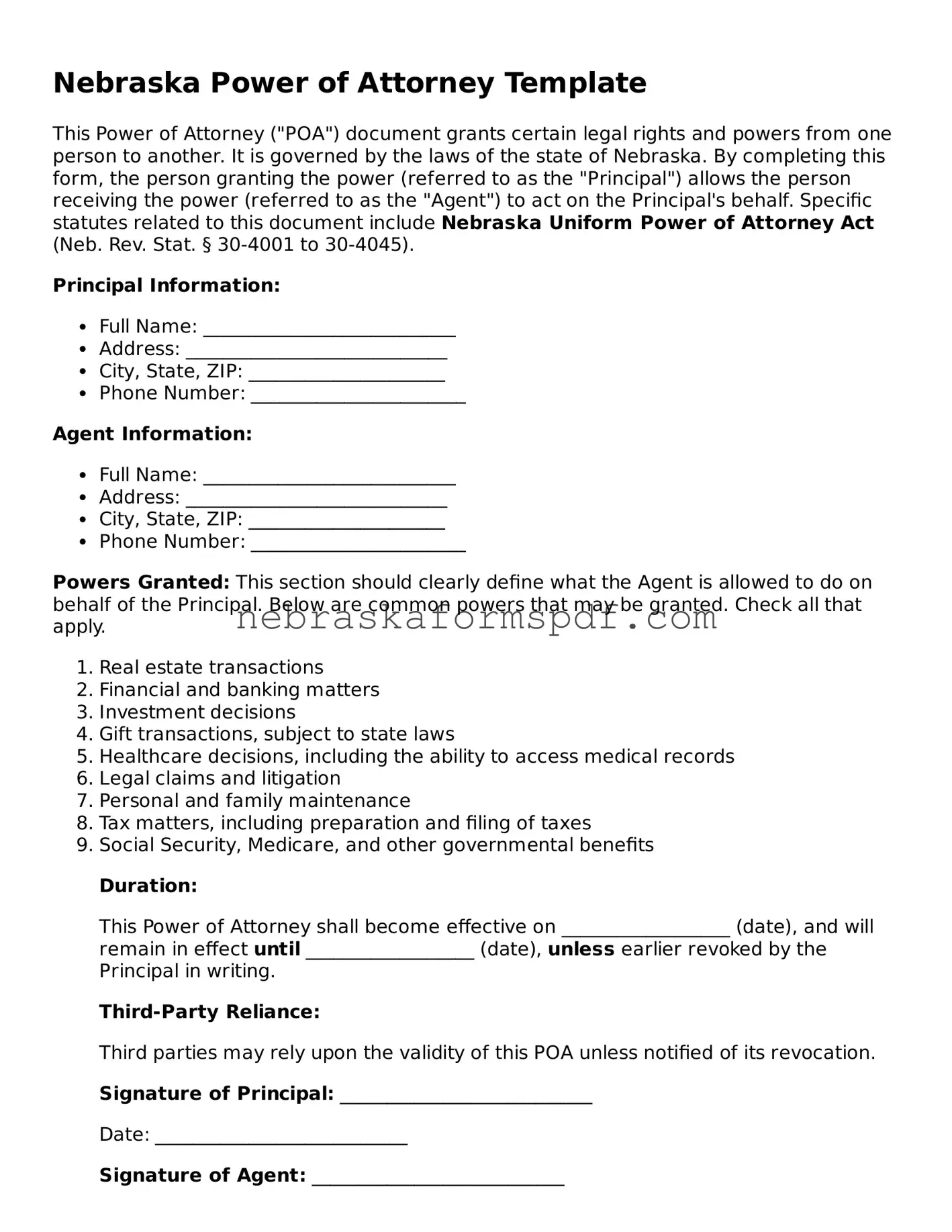Nebraska Power of Attorney Template
This Power of Attorney ("POA") document grants certain legal rights and powers from one person to another. It is governed by the laws of the state of Nebraska. By completing this form, the person granting the power (referred to as the "Principal") allows the person receiving the power (referred to as the "Agent") to act on the Principal's behalf. Specific statutes related to this document include Nebraska Uniform Power of Attorney Act (Neb. Rev. Stat. § 30-4001 to 30-4045).
Principal Information:
- Full Name: ___________________________
- Address: ____________________________
- City, State, ZIP: _____________________
- Phone Number: _______________________
Agent Information:
- Full Name: ___________________________
- Address: ____________________________
- City, State, ZIP: _____________________
- Phone Number: _______________________
Powers Granted: This section should clearly define what the Agent is allowed to do on behalf of the Principal. Below are common powers that may be granted. Check all that apply.
- Real estate transactions
- Financial and banking matters
- Investment decisions
- Gift transactions, subject to state laws
- Healthcare decisions, including the ability to access medical records
- Legal claims and litigation
- Personal and family maintenance
- Tax matters, including preparation and filing of taxes
- Social Security, Medicare, and other governmental benefits
Duration:
This Power of Attorney shall become effective on __________________ (date), and will remain in effect until __________________ (date), unless earlier revoked by the Principal in writing.
Third-Party Reliance:
Third parties may rely upon the validity of this POA unless notified of its revocation.
Signature of Principal: ___________________________
Date: ___________________________
Signature of Agent: ___________________________
Date: ____________________________
Acknowledgment by Notary Public:
This section must be completed by a Notary Public to certify the authenticity of the POA.
State of Nebraska )
________________ ) ss:
County of _________)
On this _____ day of ____________, 20__, before me, a Notary Public in and for said county, personally appeared ___________________________, known to me (or satisfactorily proven) to be the person whose name is subscribed to the within instrument and acknowledged that they executed the same for the purposes therein contained.
In witness whereof, I hereunto set my hand and notarial seal.
____________________________________
Notary Public
My commission expires: _____________________

